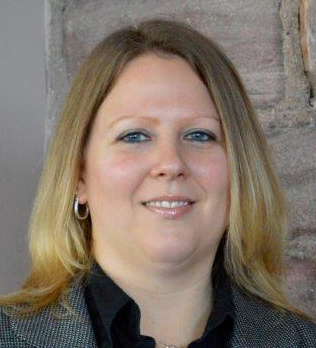
MA 30 Movers & Shapers: Sarah Burman
By John Fleming
December 5, 2017
 Director of Operations and Education
Director of Operations and Education
South Dakota Symphony Orchestra
As director of operations and education for the South Dakota Symphony Orchestra, Sarah Burman does the jobs held by multiple people at other orchestras: stage manager, personnel manager, equipment manager, and tour coordinator. She also oversees educational programming, said to serve more than 15,000 people annually.
Burman is key to the orchestra’s Lakota Music Project, an innovative community engagement program. Now in its eighth year, LMP was developed under Music Director Delta David Gier to cultivate understanding between whites and Native Americans, who have often been divided by racial tension in South Dakota. Concerts at Lakota Sioux reservations such as Rosebud and Pine Ridge and at the Crazy Horse Memorial have featured the SDSO
in collaboration with Native American composers and performers like the Creekside Singers, a Lakota drum group, and Bryan Akipa, a cedar flute soloist from the Sisseton Wahpeton Oyate tribe.
“I’ve learned a lot from our native partners,” says Burman, who studied voice and oboe at Valparaiso University, where she got a bachelor’s degree in music business in 2005. “When I first heard their music, I thought, ‘Wow! This is really different,’ but now that I’ve listened to it for several years, I’m more familiar with how it works as an art form. It’s an oral tradition, so it’s always a challenge to bring the orchestra players, who read notes from a page, together with Native American musicians who are trained orally.”
Burman, who previously worked in production for the St. Paul Chamber Orchestra and the New World Symphony, has been instrumental in the success of other SDSO community engagement programs, such as the Retirement Series of chamber music concerts at nursing and retirement homes and Music as Medicine, with ensembles from the orchestra performing at healthcare facilities.
“The biggest thing we try to avoid with our programs is one-offs,” she said. “You know, you go into a community, do your thing, it’s really awesome, and then you leave. We don’t want to be that organization. We want to have ongoing, sustainable relationships with these communities.”
Copyright © 2024, Musical America